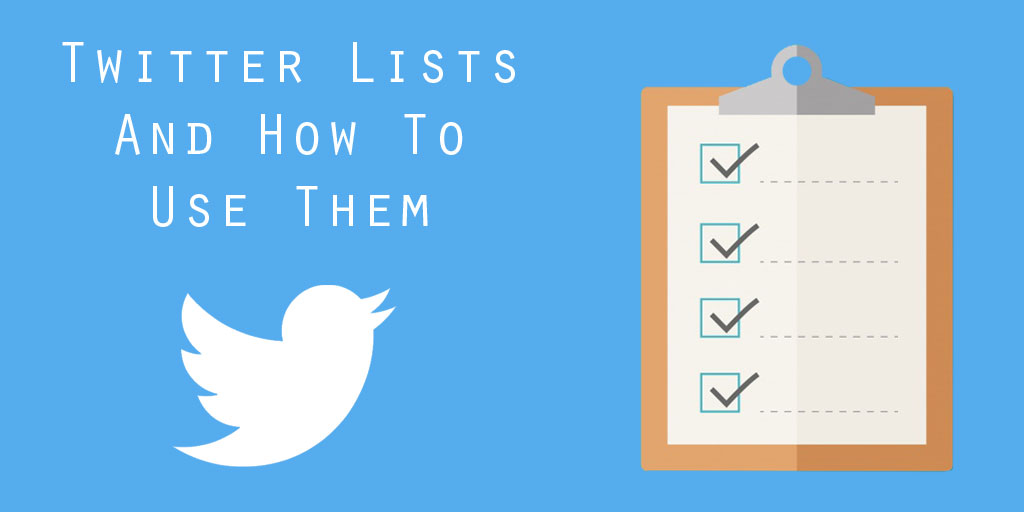 People always ask me about Twitter Lists and how they work. So, as this is a long chat, I decided to write this article to try and answer all the usual questions.
People always ask me about Twitter Lists and how they work. So, as this is a long chat, I decided to write this article to try and answer all the usual questions.
Before I give you a short, but not at all final list, as an example of what you can set up and use on your Twitter page, let me first explain how to set up a Twitter List.
- Visit your Lists page via the gear icon drop-down menu or by clicking Lists on your profile page
- Click Create List
- Name the List & provide a description
- Designate the List as Public or Private
- Save the List
Adding or Removing People from your Lists
- Use the person icon drop-down menu on somebody’s profile
- Choose add or remove from Lists
- Choose the List you would like to add the person to or uncheck the List the person was already a member of
Other Useful How To Guides
The Twitter Help Centre also has info about the following, which can be found here: https://support.twitter.com/articles/76460
- seeing Lists you’re a member of
- viewing tweets from a List
- subscribing to a List
- editing or deleting a List
- sharing a List URL
What Lists and Who to Add
Now that the set up is complete the following tips will help you to place your followers into the right list for you.
1. Industry Influencers
Keeping track on your influencers is a great way to keep abreast of what is happening with the industry. Also interacting with influencers will help build this list.
2. People who Re-Tweet you
If you have followers who always re-tweet your content, place them in a list. But don’t call the list People who re-tweet me if you’re going to leave it as public. I call ours here at Cerebral Agency “The Superhero Team”. Hmm, I guess I just gave away that secret.
3. Co-Workers
This is a great way to keep up to date with co-workers and employees and learn about their interests, and, who knows, they may tweet out a question and you may have the answer.
4. Competitors
You need to keep an eye on what your competitors are up to and tweeting about to stay ahead of them. Again, don’t name it competitors if you are going to make it public.
5. Networking Groups
Anyone who attends any networking business group you go to. This make it easy to keep track on what is happening in your local network and the next time you meet you will have ice breaker, which might just lead to some business for the pair of you.
6. People you Meet at Events
List people who are attending an event or have attended an event you went to. This helps with continuously building a better relationship and keeps the engagement going long after the event has finished.
7. List Yourself
Place yourself in the lists you have created. This will help in seeing how your tweets are doing compared with the people in your lists and will also mean that the people subscribed to those lists will definitely see what you’re tweeting.
I hope this helps you to get your Twitter Lists set up and working for you.
And just to finish off, setting up Twitter Lists also helps you with managing the content of a lot of followers.